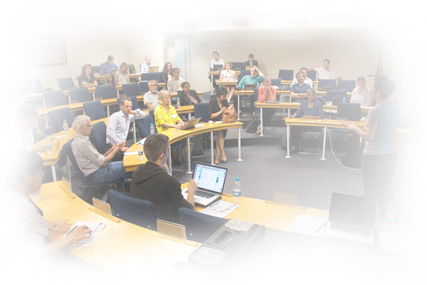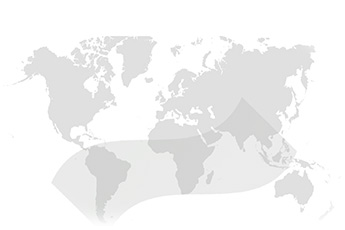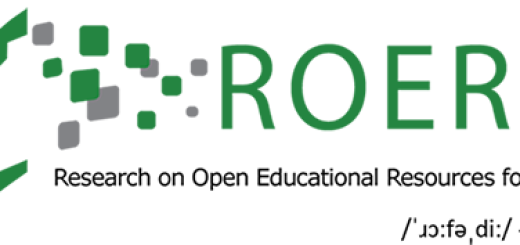Image: ROER4D Datasets on the DataFirst data portal
ROER4D’s Curation and Dissemination Manager Michelle Willmers discusses the ROER4D Open Data Initiative activity to date in light of the creation of a specialised ROER4D Collection on the DataFirst data portal.
The ROER4D Network Hub is pleased to announce the launch of the DataFirst Data Portal. Comprised of open datasets arising from research undertaken in three of the 18 ROER4D sub-projects, the collection represents the project’s growing contribution to open data on Open Educational Resources (OER) and open education in the Global South.
The first of the datasets, “OER effectiveness in higher education mathematics skills”, is comprised of qualitative and quantitative data arising from a study undertaken among first- and second-year university students in Chile by SP9 Lead Researcher Werner Westermann. The research process generated an impact analysis database (relating to student performance), and was comprised of student focus groups, teacher interviews, and a student survey. The dataset has both English and Spanish components, and may be of interest to researchers in the field of OER impact studies – particularly those working in the Latin American context.
The second dataset, “Faculty perceptions of OER in India”, arises from a study aimed at mapping the current preconceptions and behavioural determinants that influence academics’ engagement with OER in India. Undertaken by SP3 Lead Researcher Sanjaya Mishra and Researcher Alka Singh at the Commonwealth Educational Centre for Asia (CEMCA), the study utilised a mixed methods approach consisting of a survey and interviews conducted with academics at four Indian universities. The resultant dataset includes qualitative (interview transcripts) and a quantitative (survey data) components, and may be of interest to teachers, administrators, and policy-makers operating in the field of open education.
The third of the datasets in the collection, “Research into social and cultural acceptability of Open Educational Resources in South Africa”, arises from a study by SP4 Lead Researcher Glenda Cox and Researcher Henry Trotter in the Centre for Innovation in Learning and Teaching (CILT) at the University of Cape Town. Aimed at understanding why academics at three different South African universities contribute or do not contribute OER, the study utilised a mixed methods approach in which surveys and interviews were conducted to understand the conditions under which the contribution and/or use of OER would be considered socially and culturally acceptable. The dataset should be of interest to institutional managers, open education advocates, and researchers who wish to gain a better sense of the drivers influencing academics’ contribution to OER.
In all instances, published datasets include data collection instruments, dataset descriptions, an overview of de-identification methods, and extensive metadata. Datasets all undergo a multi-phased de-identification approach (conducted in collaboration with DataFirst), and accompanying documentation makes it clear when certain aspects of a dataset have not been shared for ethical reasons. All ROER4D datasets carry Creative Commons licensing and are shared in CSV, SAS, SPSS, and STATA formats.
The ROER4D Network Hub is of the opinion that sharing data openly supports the project’s central objective of building an empirical base of OER research in the Global South, and that it plays a role in enhancing rigour. Quality enhancements in data management processes and in the organisation and presentation of final published datasets have resulted in enhancements in the quality of the research process, particularly as relates to data analysis. The process of data publication has also brought into focus the need to consider various ethical and contractual issues in the project scoping stage.
In terms of the project’s ambition to publish data and operate in line with Open Research principles, the desire to share as openly as possible is mediated by pre-existing contractual frameworks. There are also important issues of timing to be considered. ROER4D’s ideological approach to openness is to make content open if it is ethical and it adds value. The “adds value” component relates not only to potential reuse by the public, but also to the value researchers experience in releasing their data. Data publication in the ROER4D Open Data Initiative is voluntary and is managed in terms of the timeframes that suit researchers and their overall publication strategies.
ROER4D open data publication activity is aimed at supporting and providing an accompaniment to online publication of a collection of ROER4D research studies, scheduled to take place in 2017.





